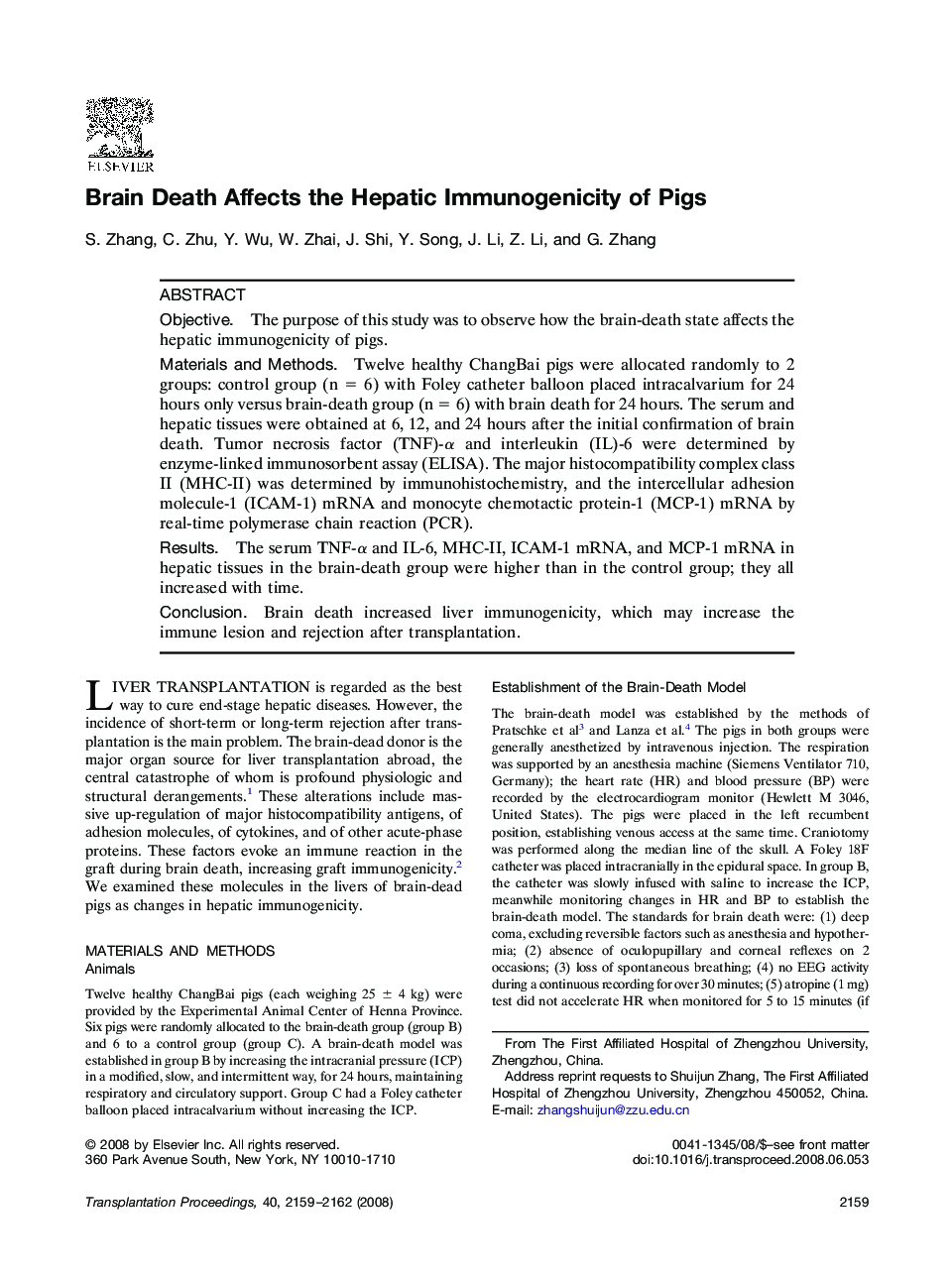| Article ID | Journal | Published Year | Pages | File Type |
|---|---|---|---|---|
| 4262460 | Transplantation Proceedings | 2008 | 4 Pages |
ObjectiveThe purpose of this study was to observe how the brain-death state affects the hepatic immunogenicity of pigs.Materials and MethodsTwelve healthy ChangBai pigs were allocated randomly to 2 groups: control group (n = 6) with Foley catheter balloon placed intracalvarium for 24 hours only versus brain-death group (n = 6) with brain death for 24 hours. The serum and hepatic tissues were obtained at 6, 12, and 24 hours after the initial confirmation of brain death. Tumor necrosis factor (TNF)-α and interleukin (IL)-6 were determined by enzyme-linked immunosorbent assay (ELISA). The major histocompatibility complex class II (MHC-II) was determined by immunohistochemistry, and the intercellular adhesion molecule-1 (ICAM-1) mRNA and monocyte chemotactic protein-1 (MCP-1) mRNA by real-time polymerase chain reaction (PCR).ResultsThe serum TNF-α and IL-6, MHC-II, ICAM-1 mRNA, and MCP-1 mRNA in hepatic tissues in the brain-death group were higher than in the control group; they all increased with time.ConclusionBrain death increased liver immunogenicity, which may increase the immune lesion and rejection after transplantation.
